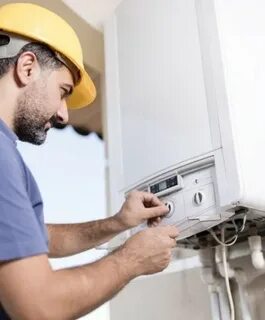A broken heating system during the cold UK months is not just an inconvenience—it can pose serious risks to the health and well-being of tenants. If you’re living in a council or housing association property and struggling with a faulty or non-functional heating system, it’s essential to understand your rights and how to take action effectively.
That’s where the Housing Disrepair Team comes in. We help tenants across the UK challenge housing disrepair issues such as broken heating systems, ensuring they receive timely repairs and fair compensation for their suffering. No one should have to endure freezing conditions due to landlord negligence.
Why Heating Matters in Social Housing
Adequate heating is not a luxury—it is a legal requirement. According to the UK Housing Health and Safety Rating System (HHSRS), landlords must provide tenants with safe and warm living conditions. A lack of heating, especially in winter, can:
-
Exacerbate respiratory conditions like asthma or bronchitis
-
Increase the risk of hypothermia in elderly or vulnerable individuals
-
Cause emotional distress and negatively impact mental health
-
Lead to the growth of damp and mould, which can damage belongings and affect health
These consequences are why heating systems are classed as a basic necessity under tenancy laws.
Landlord Responsibilities
Under the Landlord and Tenant Act 1985, landlords are legally required to:
-
Ensure that heating systems are in good working order
-
Carry out repairs in a reasonable time frame after being notified of a problem
-
Provide alternative heating solutions if delays occur
-
Maintain boilers, radiators, and heating appliances in a safe condition
Whether you’re in a council house or housing association accommodation, your landlord must act swiftly once a heating issue is reported.
Common Heating System Failures
Heating issues in council properties are more common than most people think. They can range from minor annoyances to complete system breakdowns. Some examples include:
-
Boiler not firing up
-
Cold radiators despite thermostat settings
-
Thermostat or timer malfunctions
-
Intermittent heating or hot water supply
-
Noisy or leaking central heating systems
Left unaddressed, these issues can escalate into serious disrepair claims.
What Should Tenants Do?
If you’re a tenant experiencing problems with your heating system, follow these steps:
-
Report the Problem in Writing
Always notify your landlord or housing officer in writing and request a repair timeline. Keep a copy of the complaint for your records. -
Document the Impact
Take photos or videos of any visible issues. If you or a family member suffer health problems due to the cold, obtain medical documentation. -
Request Interim Measures
Ask for temporary heaters if a permanent repair will take time. Your landlord has a duty to minimize your suffering. -
Contact the Housing Disrepair Team
If you’ve reported the issue and your landlord hasn’t acted, the Housing Disrepair Team can step in and help you take legal action.
How the Housing Disrepair Team Supports You
We understand how exhausting and demoralising it can be to live in a cold home. Our team provides:
-
Free initial consultations
-
No win, no fee legal services
-
Property inspection to assess damage
-
Collection of medical and environmental evidence
-
Legal action to demand repairs and secure compensation
We work closely with tenants to ensure they are heard, respected, and protected.
Compensation for Broken Heating Systems
Tenants may be entitled to compensation if their heating system has remained broken for an unreasonable amount of time, especially if it results in illness, damage to personal belongings, or increased energy costs. Compensation may cover:
-
Pain and suffering from cold-related health issues
-
Replacement costs for mould-damaged items
-
Emotional stress or anxiety
-
Higher energy bills due to inefficient or alternative heating methods
The amount awarded depends on the extent of the disrepair, the impact on your daily life, and how long the issue persisted.
Legal Timeframes and Rights
Landlords must respond to heating complaints promptly. While the law doesn’t specify an exact timeframe, heating repairs are considered urgent and should typically be addressed within 1 to 3 days. If your landlord fails to act within this period, it is considered a breach of their legal obligation.
Tenants have the right to:
-
Request repairs without fear of eviction
-
Seek professional legal advice
-
Take their case to court for compensation and repair orders
-
Continue paying rent only under protest while legal proceedings are underway
Tips to Avoid Heating Issues
While the onus is on the landlord to maintain systems, tenants can take basic steps to prevent common issues:
-
Bleed radiators once a year (with landlord permission)
-
Report small issues early before they worsen
-
Avoid blocking radiators with furniture
-
Check timers and thermostats regularly
Real-Life Example
One of our clients, a mother of two from Manchester, endured months without heating due to a failed boiler in her council flat. Despite repeated complaints, the council delayed repairs. After she contacted the Housing Disrepair Team, we swiftly arranged a professional inspection, secured a repair order through court, and won her over £4,000 in compensation.
Stories like this are all too common—but they don’t have to be.
Final Thoughts
Living with a broken heating system is unacceptable, especially in today’s world where warm, safe housing should be a basic human right. Tenants must stand up for their rights, and landlords must be held accountable for neglect.
If your landlord has failed to fix your heating system, don’t suffer in silence. The Housing Disrepair Team is ready to support you with legal advice, repair assistance, and compensation claims. Contact us today and take the first step toward restoring warmth and dignity to your home.
 :
https://housingdisrepairteamuk.org/
:
https://housingdisrepairteamuk.org/

